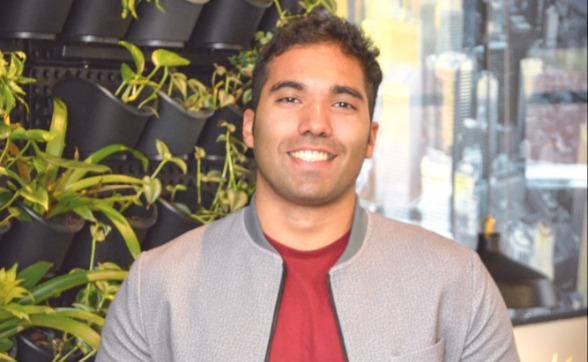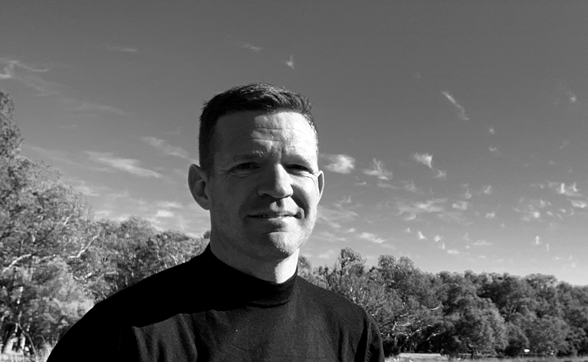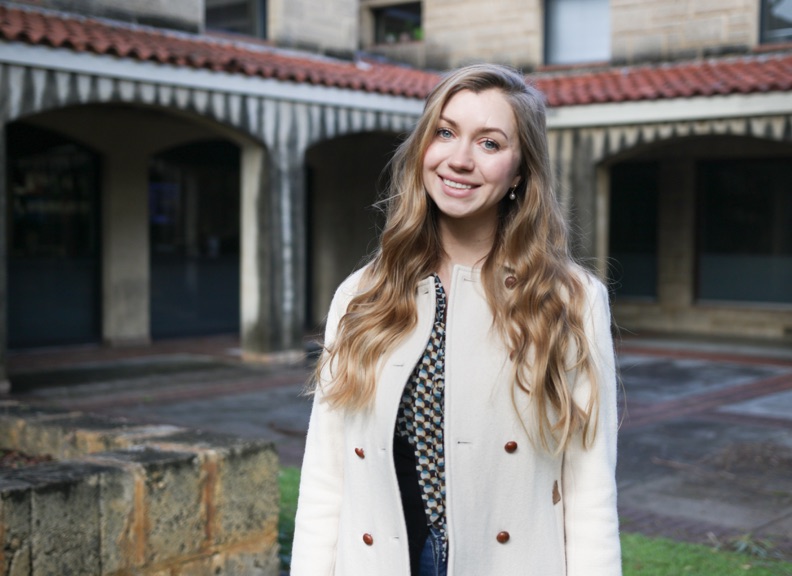A day in the life
Learn what it's like to study at UWA as an undergraduate, a postgraduate or research student and see where a degree from UWA could take you. Hear first-hand from current students, alumni and our staff.
5 steps to becoming a clinical psychologist with UWA
5 steps to becoming a clinical psychologist with UWA
Embarking on the journey to become a clinical psychologist is rewarding and at UWA you’ll have access to a comprehensive pathway that equips you with the knowledge, skills, and experience needed to thrive in this dynamic career.
Let's explore the steps to becoming a clinical psychologist and why studying at UWA is an excellent choice for aspiring mental health professionals.
The pathway to clinical psychology: from student to practitioner
- Bachelor’s degree
Your pathway to becoming a clinical psychologist typically begins with completing a bachelor's degree in psychology. At UWA, you’ll have the opportunity to study psychology within a wide range of bachelor’s degrees including the Psychology (Extended Major) and Psychological and Behavioural Sciences major, gaining a solid foundation in psychological principles, research methods, and human behaviour. This undergraduate degree serves as the first step towards pursuing advanced studies in clinical psychology. - Honours
During your honours (usually your fourth year of undergraduate study), you can concentrate on your major subjects while honing essential skills such as research, time management, problem-solving, and communication, critical for your academic and professional development. - Postgraduate degree
After completing your bachelor's degree, aspiring clinical psychologists typically undertake further study at the postgraduate level. At UWA, you can enrol in the Doctor of Philosophy and Master of Clinical Psychology which provides you with a combination of clinical skills and research knowledge. This rigorous course combines coursework, clinical placements, and research training prepares you for professional practice in clinical psychology and is accredited by the Australian Psychology Accreditation Council (APAC). - Practise registrar period
Following completion of the master's program, you must fulfill a period of supervised practice, known as a registrar period, internship, or supervised practice placement. This involves working under the supervision of experienced, board-approved clinical psychology supervisors in a variety of settings, such as hospitals, mental health clinics, or private practices. The length of this supervised practice period varies depending on the type of degree completed but typically lasts for at least two years. - Registration as a clinical psychologist
Upon successful completion of the supervised registrar period, you are eligible to apply for endorsement as a clinical psychologist, which involves demonstrating a high level of competency in clinical practice through a combination of education, training, and supervised experience.
Why study clinical psychology at UWA
Studying clinical psychology at UWA offers you a distinct advantage, thanks to the university's reputation for excellence in both teaching and research. UWA's School of Psychological Science is home to world-renowned researchers and clinicians who are at the forefront of advancing knowledge in the field of psychology.
UWA’s Doctor of Philosophy and Master of Clinical Psychology provides you with a comprehensive and evidence-based education that prepares you for the diverse challenges of clinical practice. Through a combination of coursework, practical placements, and research opportunities, you will develop the skills and expertise needed to work effectively with individuals, families, and communities facing mental health challenges.
UWA has a strong emphasis on research, leading in clinical psychology training. You’ll engage in cutting-edge research projects and collaborate with staff members who are conducting groundbreaking research in areas such as mental health interventions, neuropsychology, and psychotherapy outcomes.
Ready to get started? Find out how to apply now.

90 years of Italian at UWA
Italian Studies90 years of Italian at UWA

Aaron D'Cruz
AlumniAaron D'Cruz
Designing products the world has never seen before is beyond fulfilling. The process of exploration, ideation, designing and deploying is fun every step of the way, and allows me to experiment with different tools and ideas. It’s the most interesting part of my career so far, and I’d like to continue creating bigger and bolder tools for the rest of my life."

About the Population Health major
About the Population Health major
CloseAdil Cader
Master of International LawAkash Mishra
Master of Business Information and Logistics ManagementAkash Mishra
UWA is the best university in WA. The master’s framework is very practical and prepares you for advanced business and career exposure. The faculty members, beautiful campus and friendly environment make studying here an amazing experience. I chose to study the Master of Business Information and Logistics Management because it is industry relevant and combines both business and IT. This course suits someone who wants to pursue a career in something like business analytics or digital marketing.

Alastair Milne
Graduate Certificate in Business PsychologyAlastair Milne
1. What aspects of the course did you find most valuable?
Teamwork unit – The concept of 'Psychological Safety' was more lighthouse than lightbulb moment. At the time of study I had 3 areas aligning to make this so valuable, learning the science behind what I'd sensed and felt in teams for decades, experiencing group therapy as an out-patient, watching how clinicians created psychological safety to support our growth at the most challenging of times and volunteering at a mental health charity helping create psychological safety as part of a return-to-work plan.
Work Design unit – ‘Dark lightbulb’ moments of deep reflection on how me and workplaces impacted each other during stressful times. Understanding the science of job demands and resources helped make my subjective experience more objective and was somewhat therapeutic, replacing anger and resentment with purpose and hope. This helped shape my own return to work plan and the moments of thriving I now experience at work.
Human & Org Factors in Managing WHS OHS unit - Understanding the science of safety whilst sharing my experience of the 'nuances' of implementation as a safety professional. Learning evidence-based concepts to challenge ill-informed opinions and knee-jerk reactions in safety was and is still very valuable.
Leadership unit - This prompted a lot of reflection on the leader I’ve been, I am and seek to become. Most importantly it helped develop a mantra that ‘leaders are people’ and may also need support.
2. How have you applied the knowledge or skills gained from the program in your current role or career?
Psychological Safety - As a trainer in mental health, safety, leadership and like skills I have ongoing practice in creating psychological safety to help people learn. You could say “I’ve found my why”. As a certified ‘Fearless Organization’ practitioner I now support teams to increase psychological safety for themselves, bringing the research into the ‘real world’.
Job Demands / Psychosocial Hazards – The knowledge of job demands gained in the Work Design unit led me to develop a deep understanding of Psychosocial Hazards and the WHS Codes of Practice. This is applied continually in my role as a training facilitator, raising awareness of what is a relatively new area to most, but resonates with people’s experiences of work.
3. What impact has completing the course had on your professional growth or opportunities?
Mental Health First Aid (MHFA) - I was introduced to Mental Health First Aid during a team assignment in the WHS unit. Seeing the potential for me to combine lived experience with an evidence-based program I went on to become an accredited Instructor. In the time since, I’ve delivered over 30 MHFA courses, mostly for Lifeline for several years now. It also opened several long-term relationships to deliver other mental health training which are ongoing.
Australian Institute of Health and Safety (AIHS) – During the WHS unit we studied chapters of the AIHS Body of Knowledge (BoK), a source of credible, practical advice to help safety professionals think more critically, be more effective and bring rational thought to issues of high emotion. As an AIHS member I started and continue to facilitate ‘BoK Breakfast’ networking events to advocate for the BoK whilst bringing safety and related professionals together. This gives me the opportunity to have a direct positive impact, again bringing the research to the ‘real world’.
Facilitating and Consultancy – Having GCBP qualification has supported my credibility as a facilitator and consultant. Its helped demonstrate my commitment to evidence-based and informed practice, resulting in long term business relationships with several credible Education organisations.
4. What would you say to someone considering enrolling in the program?
People have often asked, "Business Psych, that sounds interesting, what does it cover?" My explanation is the science of how work impacts our thinking, feelings and behaviour and vice-versa. As people we can be anywhere on the spectrum from severe mental illness to thriving and we bring this to our work. The GCBP course helps us understand how to reduce harm at work but also potentially make good work which supports our health. This reaches way outside the workplace, impacting us, our families and those around us, promoting a healthier society.
To truly get the most from the course, be prepared to embrace in sometimes uncomfortable self-reflection and learn from your own experiences of work. The course will help you identify learnings from work experiences which have been good and bad, helpful and unhelpful, toxic and thriving. The GCBP will help you learn credible, evidence-based methods of creating healthier, more effective workplaces.
5. Why did you choose UWA?
The GCBP appeared to be the best way to combine my safety background and lived experience of mental illness in the workplace with learning credible approaches to help. Being aware that our effectiveness is a combination of what we bring plus the environment we are in, it was important to feel that UWA would be that supportive environment.
During the initial call with the course leader I sensed passion, enthusiasm and a level of care which made a huge impact. The eagerness to have a ‘mature’ student share experience helped me feel a sense of worth. This proved true and I’m grateful for the human touch of the teaching staff.
As someone whose is more effective when surrounded by nature and having ridden my bike past the Crawley campus hundreds of times, finding the ‘serene’ beauty of the campus is an experience I still enjoy now.

Alexander Floyd
Data Science majorAlexander Floyd
The facilities and the staff here are world-class, with most of my lecturers and tutors holding PhDs, so I am constantly inspired. The projects and assignments are very relevant and the skills I am learning are easily transferable. The social life on campus is fantastic with all the clubs very welcoming and very active. As a mature-age student, I thought I might be too old to socialise, but this most definitely isn’t the case.

Alexandra Hall
Master of CommerceAlexandra Hall
WILG 5001, UWA (Community and Engagement)
“I worked on a project where I used the community partnerships metrics to analyse data from past years, categorise it and determine the level of engagement with different stakeholders. It helped me develop an understanding of the metrics and governance process, and I learned to use new software programs such as HP Data Records Manager. I enjoyed doing an internship at UWA; it’s nice to have on my resume that I studied and worked at a Group of Eight university. I was also able to explore areas outside of my study, as I managed to acquire marketing skills when I worked on website development.”



